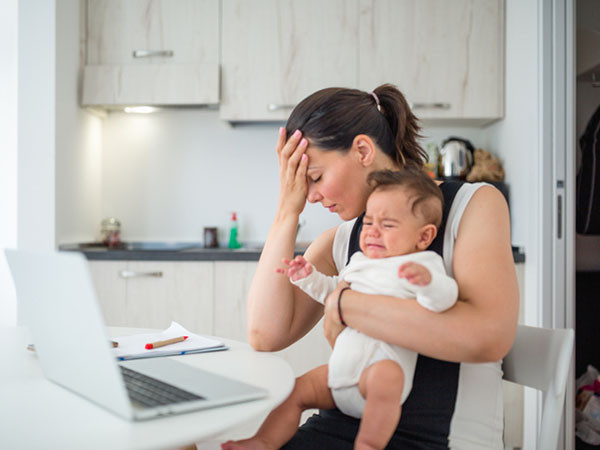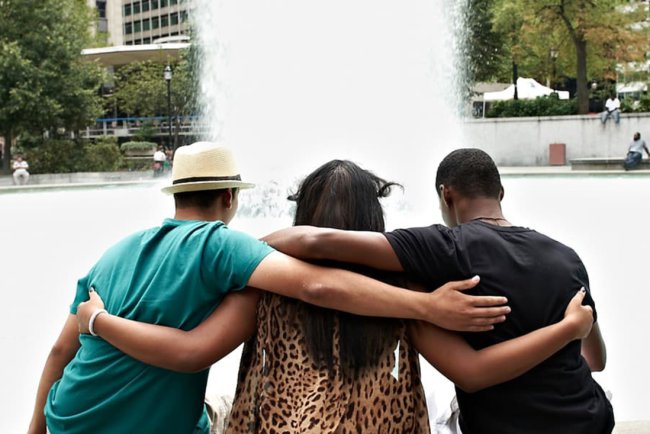Although common, postpartum anxiety is frequently overlooked. Here's What You Must Understand
This is the moment you have been dreaming of for nine long months—the moment you finally hold your baby in your arms. Your baby has arrived after a haze of prenatal visits, name disputes, crib assembly, and possibly a few hormone-fueled nesting frenzy. She is flawless, incredibly small, and as soft as velvet.

But a change occurs somewhere in the haze of restless nights and never-ending feedings.
You are energized, not just exhausted. Running on adrenaline and fumes, you seem to be looking for danger in every cough, every wail, and every breathing break. Does she eat enough? Why is she crying so much? Why does it seem like a horrible event is always on the horizon?
The baby blues are not this. Furthermore, it may not be postpartum depression. It might be postpartum anxiety, which is more elusive yet equally real.
What Is Postpartum Anxiety and Why Is It Not Discussed More?
Postpartum anxiety is not as well-known as postpartum depression or the more well-known baby blues. Most OB offices do not have "formal" forms for screening for postpartum anxiety. Friends may not notice. You may even wonder if your feelings are typical new-mom anxiety or something else entirely.
Nevertheless, postpartum anxiety is extremely frequent, affecting around 1 in 5 new moms. This number may be higher when underreporting and misdiagnosis are taken into account.
Similar to postpartum depression, it frequently arises as a result of a confluence of factors such as falling hormone levels, lack of sleep, emotional overload, and the abrupt, profound change in identity that comes with becoming a mother. However, in contrast to depression, postpartum anxiety is characterized by unrelenting terror rather than sadness.
Is it postpartum anxiety, postpartum depression, or baby blues?

The breakdown is as follows:
You may have feelings of fragility, overwhelm, or tears, but these are transient and usually go away on their own without medical intervention.
Postpartum Depression (PPD): Depression may be indicated if your melancholy intensifies, persists, or begins to interfere with your capacity to function. Hopelessness, guilt, loss of interest, and disturbed sleep are prevalent.
PPD's nervous cousin is postpartum anxiety (PPA). It may manifest as a racing mind, a thumping heart, tightness in the chest, restlessness, irritation, and persistent, recurring anxiety. You may find it difficult to unwind even while the infant is asleep. Your breath is shallow and your body feels strained. Even when there is nothing overtly amiss, you are on high alert. However, anxiety on its own can be just as crippling for some people.
What Feels Like Postpartum Anxiety?

Postpartum anxiety can take many different forms. It can come in slowly, like a tide, or it might come in all at once, leaving you out of breath. For certain ladies, it shows up as:
Panic attacks include sudden spikes in anxiety, a jackhammer-pounding heart, lightheadedness, nausea, or a sense of impending doom.
Obsessive thoughts (OCD) are intrusive, frequently frightening thoughts about your kid being harmed, or even about hurting yourself. Even though these are really upsetting, you should not act on them.
Compulsions are routines or actions you undertake repeatedly in an attempt to reduce worry, such as checking your baby's breathing numerous times every night.
Although these symptoms can be embarrassing and alienating, most individuals are unaware of how prevalent they are. They can also be treated.
What Causes Anxiety After Giving Birth?

A number of things can make you more vulnerable, such as:
A prior stillbirth or miscarriage
A traumatic or challenging birth
stressful situations in life (unstable finances, lack of support, stress at job)
Changes in hormones, especially after stopping breastfeeding
Sometimes the weight of all the little things adds up to one large thing. The disturbed slumber. the unrelenting demands. The abrupt, overwhelming burden of caring for another human being.
What Are the Treatments for Postpartum Anxiety?
We do have some effective tools, even though research on postpartum anxiety is still catching up to what women have understood for years:
1. CBT, or cognitive behavioral therapy
This is frequently the initial course of treatment. By gently rephrasing worried thought patterns, cognitive behavioral therapy (CBT) teaches your brain new ways to react to perceived dangers. Women who suffer from OCD symptoms or intrusive thoughts will find it very beneficial.
2. Drugs
Some women may need medication, particularly if their anxiety is extreme or interferes with their day-to-day activities. Selective serotonin reuptake inhibitors, or SSRIs, are the most often recommended medications; many nursing mothers can safely take them, and they have a good history of treating anxiety. While waiting for an SSRI to start working, benzodiazepines can also be used temporarily, particularly for severe anxiety or panic episodes.
Together, you and your doctor will assess the advantages and disadvantages, taking into account your medical history, feeding schedule, and the health of your unborn child.
What About Medicine and Breastfeeding?
It makes sense that a lot of mothers are concerned about taking medicine while nursing. Yes, some mental health drugs do find their way into breast milk, but usually in very little amounts that are safe for the unborn child.
However, you are also important. Anxiety is a severe health issue that should be handled if it is impairing your well being or your relationship with your child.
What's Your Reaction?




















